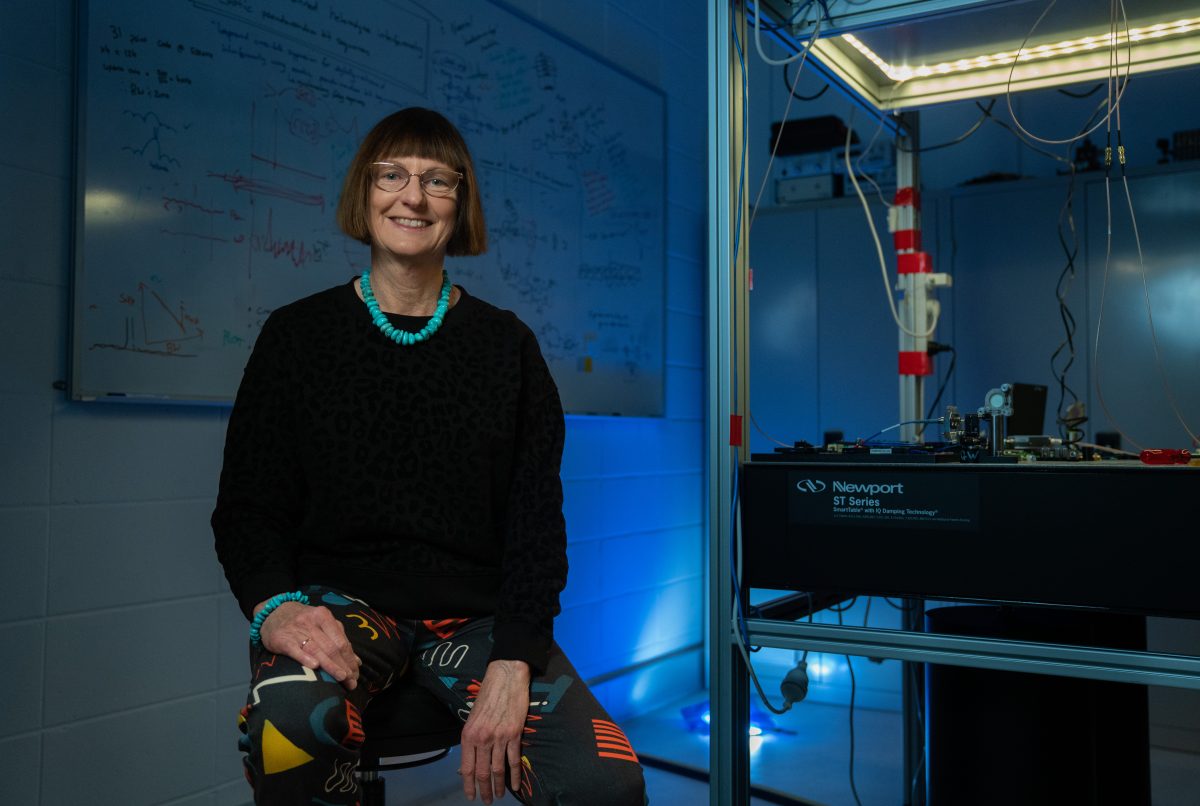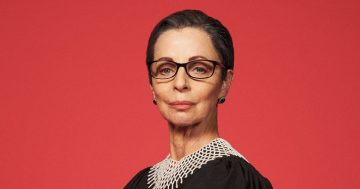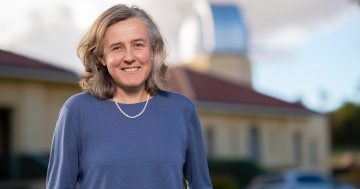
Distinguished Professor Susan Scott is the first Australian ever to be elected to the International Society on General Relativity and Gravitation. Photo: Tracey Nearmy/ANU.
Australian National University (ANU) professor Susan Scott has become the first Australian elected as a fellow to the International Society on General Relativity and Gravitation (ISGRG).
Distinguished Professor Susan Scott is a theoretical physicist at the ANU who works to understand more about space-time, the universe, black holes, and most notably, gravitational waves.
She has been working on the topic since the 90s and was a part of the group of scientists that detected gravitational waves for the first time.
The election places Prof Scott among numerous top scientists and Nobel laureates around the world including Kip Thorne, Stephen Hawking, and Roger Penrose.
Only a handful of fellows are elected to the ISGRG each year, with about 50 elected fellows currently in the world.
Prof Scott said she was honoured to be elected.
“It was an incredible surprise for me and a fantastic recognition of all the work that I’ve been involved with,” she said.
As the first Australian to be elected as a fellow, Prof Scott said she felt Australia was being recognized on a global scale.
“With this election, I feel that Australia is now being recognized across the world for the work it can do,” she said.
“Currently we don’t have a gravitational wave detector in the Southern Hemisphere, so we have been providing information to various international partners.”
With the new technology and innovations such as the James Webb telescope, Prof Scott said the future was very bright for gravitational research.
“There is work being done now to create a new generation of gravitational wave detectors and alongside the James Webb telescope the future is very bright for us,” she said.
“I’d like to see the creation of a global network of detectors which should be possible with the new detectors and powerful telescopes that are being made.”
Prof Scott said that her election means she now has a wider platform to grow her research.
She’s currently involved with the Einstein-First education program, a program that aims to explain physics to school kids between years three to ten around Australia in an easy to understand and hands-on way.












